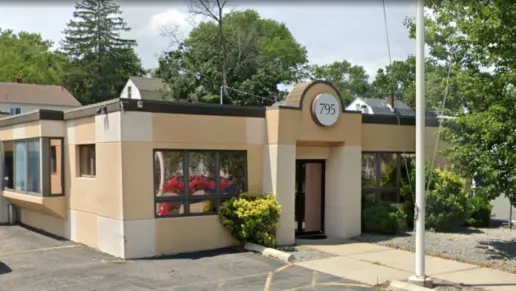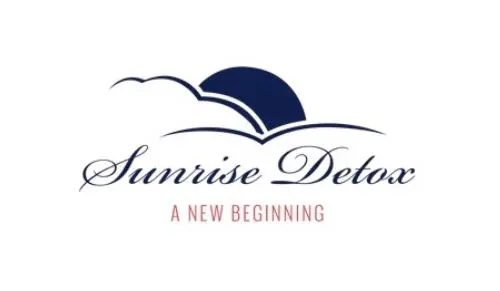About Seabrook House
Seabrook House provides comprehensive, 12-step-focused addiction recovery services for adults in Shrewsbury, New Jersey, including crisis intervention and patient stabilization, medically supervised detox, dual diagnosis care, and inpatient, partial hospitalization (PHP), intensive outpatient (IOP), general outpatient (OP), and aftercare programming. They are accredited by CARF and NAATP.
Treatment at Seabrook House begins with a comprehensive medical and mental health assessment and a personalized care plan tailored to clients’ unique needs and recovery goals.
Their residential treatment centers enable clients to focus on their recovery in an inviting, home-like environment featuring luxury amenities, including onsite fitness and recreational facilities. Clients undergoing detox may be prescribed FDA-approved medications to ease withdrawal symptoms and prevent complications. Clients also engage in intensive individual, group, and family counseling and gender-specific, recovery-focused life skills training. An array of evidence-based complementary therapies is available, including eye movement desensitization and reprocessing (EMDR), brainspotting, creative arts, sound therapy and drum circle, yoga, meditation, massage, and acupuncture.
Their outpatient programs encompass multiple levels of care to align with clients’ evolving needs. Aftercare services offer wraparound support, including peer coaching, 12 step program facilitation, and referrals for additional services.
Seabrook House accepts most major insurance providers, including Aetna, AmeriHealth, Magellan Health, BlueCross/BlueShield, Horizon, and ComPsych. They also accept Beacon, Cigna, United Healthcare, UPMC Health Plan, VA Community Care, and others. Out of network benefits vary. Please contact your provider to verify coverage.
Rehab Score
Accepted Insurance


Other Forms of Payment
Self-pay involves paying for treatment out of your own pocket. You can use savings or credit, get a personal loan, or receive help from family and friends to fund your treatment. If you don't have insurance or your insurance plan doesn't cover a specific program, self-pay can help ensure you still get the care you need.
Private insurance refers to any kind of healthcare coverage that isn't from the state or federal government. This includes individual and family plans offered by an employer or purchased from the Insurance Marketplace. Every plan will have different requirements and out of pocket costs so be sure to get the full details before you start treatment.
Financial aid can take many forms. Centers may have grants or scholarships available to clients who meet eligibility requirements. Programs that receive SAMHSA grants may have financial aid available for those who need treatment as well. Grants and scholarships can help you pai for treatment without having to repay.
Addiction Treatments
Levels of Care
Treatments
The goal of treatment for alcoholism is abstinence. Those with poor social support, poor motivation, or psychiatric disorders tend to relapse within a few years of treatment. For these people, success is measured by longer periods of abstinence, reduced use of alcohol, better health, and improved social functioning. Recovery and Maintenance are usually based on 12 step programs and AA meetings.
Drug rehab in New Jersey is the process of addressing the complex issues involved with addiction. Challenges are identified and addressed through individual and group counseling. Participants learn how to manage these issues without the use of substances.
Many of those suffering from addiction also suffer from mental or emotional illnesses like schizophrenia, bipolar disorder, depression, or anxiety disorders. Rehab and other substance abuse facilities treating those with a dual diagnosis or co-occurring disorder administer psychiatric treatment to address the person's mental health issue in addition to drug and alcohol rehabilitation.
A combined mental health and substance abuse rehab has the staff and resources available to handle individuals with both mental health and substance abuse issues. It can be challenging to determine where a specific symptom stems from (a mental health issue or an issue related to substance abuse), so mental health and substance abuse professionals are helpful in detangling symptoms and keeping treatment on track.
Opioid rehabs specialize in supporting those recovering from opioid addiction. They treat those suffering from addiction to illegal opioids like heroin, as well as prescription drugs like oxycodone. These centers typically combine both physical as well as mental and emotional support to help stop addiction. Physical support often includes medical detox and subsequent medical support (including medication), and mental support includes in-depth therapy to address the underlying causes of addiction.
Programs


Clinical Services
Cognitive Behavioral Therapy (CBT) is a therapy modality that focuses on the relationship between one's thoughts, feelings, and behaviors. It is used to establish and allow for healthy responses to thoughts and feelings (instead of unhealthy responses, like using drugs or alcohol). CBT has been proven effective for recovering addicts of all kinds, and is used to strengthen a patient's own self-awareness and ability to self-regulate. CBT allows individuals to monitor their own emotional state, become more adept at communicating with others, and manage stress without needing to engage in substance abuse.
Whether a marriage or other committed relationship, an intimate partnership is one of the most important aspects of a person's life. Drug and alcohol addiction affects both members of a couple in deep and meaningful ways, as does rehab and recovery. Couples therapy and other couples-focused treatment programs are significant parts of exploring triggers of addiction, as well as learning how to build healthy patterns to support ongoing sobriety.
Creativity is inherently healing, and can help those in recovery express thoughts or feelings they might not otherwise be able to. Creative arts therapy can include music, poetry/writing, painting, sculpting, dance, theater, sandplay, and more. Unlike traditional art, the final product matters far less than the experience of creation and expression itself.
Equine assisted therapy incorporates horses experientially for emotional growth and learning. It’s an experiential modality in which patients learn about themselves and others by participating in activities with horses, and then discussing thoughts, beliefs, behaviors, and patterns.
Experiential therapy is a form of therapy in which clients are encouraged to surface and work through subconscious issues by engaging in real-time experiences. Experiential therapy departs from traditional talk therapy by involving the body, and having clients engage in activities, movements, and physical and emotional expression. This can involve role-play or using props (which can include other people). Experiential therapy can help people process trauma, memories, and emotion quickly, deeply, and in a lasting fashion, leading to substantial and impactful healing.
The core of EMDR (Eye Movement Desensitization and Reprocessing) treatment involves activating components of traumatic memory or disturbing life events and pairing them with alternating bilateral or dual attention stimulation. This process appears to facilitate the resumption of normal information processing and integration.
The Family Department at Seabrook offers a wide range of services to families struggling with addiction. Their staff of professionals has extensive experience working with families. Their approach is couched in family systems theory and they connect with families through compassion and understanding. They even have the facilities and guidance to help you plan an intervention. The Family Matrix Program is a three-day family experience that allows families to begin to heal and strengthen the bonds strained by addiction.
Group therapy is any therapeutic work that happens in a group (not one-on-one). There are a number of different group therapy modalities, including support groups, experiential therapy, psycho-education, and more. Group therapy involves treatment as well as processing interaction between group members.
In individual therapy, a patient meets one-on-one with a trained psychologist or counselor. Therapy is a pivotal part of effective substance abuse treatment, as it often covers root causes of addiction, including challenges faced by the patient in their social, family, and work/school life.
Life skills trainings involve all the skills a person must have in order to function successfully in the world. These include time management, career guidance, money management, and effective communication. Truly successful addiction recovery is based on the ability to not only live substance-free, but to thrive. Life skills teaches the practical necessities of functioning in society, which sets clients up for success in life, and therefore sobriety.
Motivational Interviewing (MI) is a clinical approach to helping people with substance abuse issues and other conditions shift behavior in positive ways. It is more goal-oriented than traditional psychotherapy, as MI counselors directly attempt to get clients to consider making behavioral change (rather than wait for them to come to conclusions themselves). Its primary purpose is to resolve ambivalence and help clients become able to make healthy choices freely.
Nutrition therapy, aka medical nutrition therapy (MNT), is a way of treating physical, emotional, and medical conditions through diet. Specific dietary plans are designed by professional nutritionists or registered dietitians, and patients follow them in order to positively affect their physical and mental health.
Amenities
-
Yoga Studio
-
Wifi
-
Hiking
Accreditations

The Commission on Accreditation of Rehabilitation Facilities (CARF) is a non-profit organization that specifically accredits rehab organizations. Founded in 1966, CARF's, mission is to help service providers like rehab facilities maintain high standards of care.
CARF Accreditation: Yes
Accreditation Number: 298835

The National Association of Addiction Treatment Providers (NAATP) is a professional association that represents organizations in the field of addiction services. Founded in 1978, NAATP's mission is to advance addiction services and ensure that high-quality addiction treatment is available and accessible.
NAATP Member: Yes
Member ID: 17919
Contact Information
21 White Street
Shrewsbury, NJ 07702











